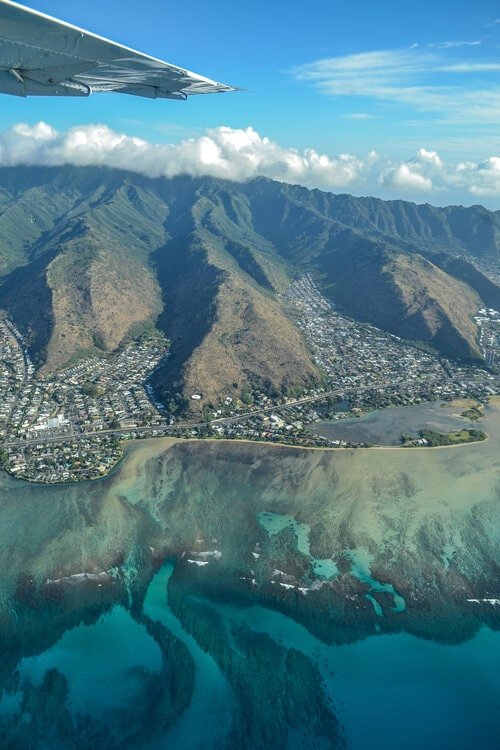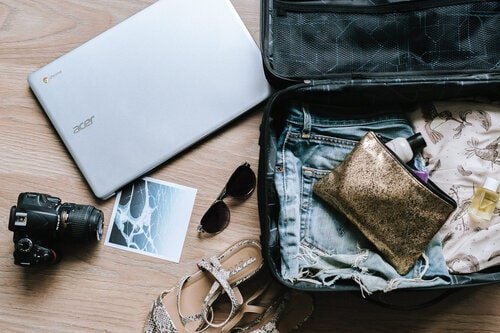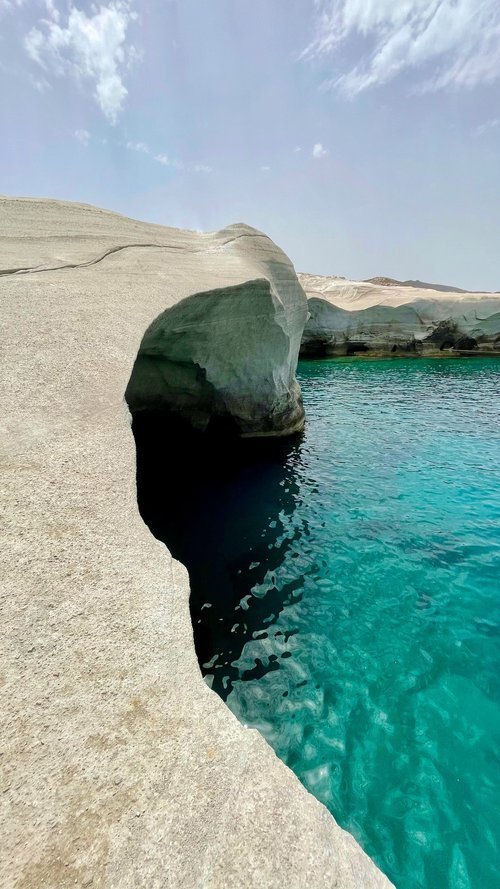How to Budget for a Big Trip
Don’t aimlessly follow those sheep that seem to bask in free-balling it; tackle a big trip balls-on and budget for it. It takes a lot of time, research and thought, but it’s an essential part of planning that you simply can’t afford to miss.
Here are some of my best hacks that have helped me effectively save and budget enough cash to travel around the world.
Here’s what we cover:
Determine the Big Expenses: Flights & Accommodation
Factor in Transportation, Food & Activities
Account for pre-trip purchases
Invest in the right gear
Pack Like a Pro
Budget Like a Pro
Start your budget with the biggest expenses first.
Generally speaking, this will be your flight and accommodation. Brainstorm a rough idea of how long you’ll be away so that you can calculate a daily cost based on accommodation rates and food expenditure.
It’s important to remember that all those tasty treats and beers can add up quickly.
Budget accordingly, leaving yourself a little extra to fruitfully enjoy those weed cookies in Amsterdam or demolish that extra scoop of heavenly gelato in Rome.
Add more for activities, entry fees, tours, entertainment, and anything else on your to-do list.
For instance, a big trip spent seeking out the most turquoise water in Malta would highly differ from a week-long bush doof in the Australian outback.
Most of the time, buying your tickets in advance is cheaper, and I generally rely on Get Your Guide for all the best deals and offers on activities. It’s the best option for skipping those dreaded lines too.
There’s nothing fun about scavenging your way through thousands of flights to find the cheapest one. And with an influx of search engines and incessantly fluctuating prices, it can feel overwhelming.
But there’s no need to fear. Frugal flights are out there; you must have a few tricks up your sleeve.
I’ve compiled some of my best tips to avoid spending hours scrolling through a tantalisingly never-ending scavenger hunt and to help you save some serious cashola.
Check out this post on how you can Master the Art of Scoring Cheap Flights…
2. Don’t forget about transportation; how will you get around every day?
You can’t just moonwalk through those foreign streets; it’s been tried and tested since my time in Bangkok. Don’t forget about bus fees, petrol or gas, taxi surcharges, etc.
3. Account for pre-trip purchases.
These include your visa fees, passport renewal fees, travel insurance, etc. My best advice is don’t skip the travel insurance. You do not want to get caught in a sticky situation.
Initially, I had always considered it a major scam, but when my apartment in Barcelona got broken into and my valuables disappeared, I could not have been grateful for not skimping out on it.
Plus, it’s handy if your flights are cancelled, the airline loses your luggage, or another bump in the road somehow surfaces. Wouldn’t you rather have the peace of mind of knowing that your ass is covered?
4. Invest in the right gear
You can’t dismiss a good, quality suitcase. One of my best friends got stuck in Amsterdam airport with a broken suitcase, and she had to duct tape the absolute life out of it. Learn from our mistakes!
Invest in a decent suitcase, a robust and comfortable backpack, and a decent pair of shoes. Unless you’ll be chauffeured around in a limousine like Princess Diana, the stakes are you’ll be walking around a lot, so choose wisely.
Don’t forget about power adapters, clothing (according to the weather of your destination) and some entertainment for those long journeys, i.e. flights, bus rides, long drives, etc. I always bring a couple of new books with me too.
Whether you’re a self-proclaimed travel fanatic or your first time flying, it’s worth investing in the right gear to ensure your travels are as hassle-free as possible.
Be sure to check out My Travel Must-Haves for all the best gear for travellers down low!
5. Pack Like a Pro
Let’s not forget that packing can gravely impact your travel expenses too. At times, the minimalist approach to packing can seem like you must sacrifice style and comfort and cut back on everything to achieve a somewhat unachievable task. But, the reality is that travelling light is the utter opposite. It’s simply about being mindful of the small increments that can add up fast. Just like making a burrito…
You want to chuck in as many mouth-watering Mexican delicacies as humanly possible without the burrito exploding. Check out my best packing hacks on How to Pack Light.
Once you’ve calculated how much you’ll need, you can figure out how much you’ll need to save each time your beloved paycheck comes through.
Don’t let this number taunt you; use it as motivation to get up and get through work every day! There’s no need to punch Penelope in the face because she ‘borrowed’ your stapler (again!) if in just a few short months you’ll have the time of your life in a foreign land far, far away...
6. Budget Like a Pro
Here’s an Example Budget for a 2-month trip through Spain.
Flights (including return): $1500.00 in total
Accommodation (varies between hotels, Airbnb’s, hostels, etc.): $50.00-100.00 per day
Transportation: $30.00 per day
Food and drinks: $40.00 per day
Activities, entry fees, other: $60.00 per day
Pre-trip expenses (visa fees, suitcase, backpack, equipment): $500.00
Travel insurance: depends on the company, roughly around $600.00
If you’re after precise information regarding travel costs for specific countries, check out this website. It’s packed with plenty of helpful info.
Budget Travel Tips
If you’re struggling to save the cash, remember that being flexible is just as ideal in the sheets as on the streets. That is to say; you may need to change up your original itinerary.
A big trip means you need to be realistic. Prepare yourself to ditch the idea of 5-star dining for something a little more budget-friendly, whether that’s eating at a warung in Bali or a local tavern in Greece.
As you’re saving, it’s crucial that you cut down on unnecessary expenses. Skip that sweaty Saturday session at the nightclub and steer clear of those ever-too-tempting shopping centres. It’s called money management, people.
Buy a filtered water bottle in advance. That way, you don’t have to waste money buying plastic water bottles daily, and you’re not contributing to the plastic pollution problem destroying our planet.
A reasonable budget includes a little extra dosh for unaccounted things that may or may not pop up.
Get your ‘side hustle’ on. Another helpful way to save extra cash is to get another job. Babysitting, a weekend bar job, stacking shelves in a supermarket, anything can help. Before leaving for Europe, I worked three jobs with 0 days off. It was a tough couple of months, but my sacrifices were well worth it.
Don’t forget about getting to and from the airport! There are generally surcharges involved in the majority of countries.
If budgeting is challenging, get on a countdown calendar to give yourself a dash of daily incentive.
Carry cash and valuables in different places. It’ll make things easier for you in the case of theft or lost luggage.
Do not carry cash in an easily accessible jacket or pants pocket. I’ve seen far too many travellers get taxed in the Barcelona, Paris and Rome metro. Europe has a plague of pickpockets, so watch your surroundings.
Use hostel lockers or hotel safes where feasible.
You can save extra cash by booking your big trip during the low season.
Remember that you can save money on food and drinks by preparing them at home instead of heading out to eat.
If you’re on a tight budget, there are other forms of transport in between countries that could save your ass.
You could catch an overnight ferry instead and pay a small fraction of the price. Hopping on a ferry also means you’ll have one night’s less accommodation to pay for! To understand how big a difference we are talking about, I paid €30.00 for a ferry from Mallorca to Ibiza instead of a €120.00 flight...
FAQS
How do I budget for a big vacation?
Pick a destination and organise a travel budget. Plan for the biggest expenses, like flights and accommodation, then add other things like activities, transport and food. Figure out the total amount for your trip, then divide that number into monthly goals. Open a savings account and start saving!
How much money should you take on a 7-day trip?
That depends on the location. As a general rule of thumb, aim to set aside at least €50 to €100 per day per traveller. Europe tends to be more affordable than other parts of the world, so consider that.
Is $5000 enough for a trip to Europe?
$5000 is plenty of money for a trip to Europe. With that amount, you’ll travel comfortably for a few weeks, sample the cuisine, enjoy the activities and make the most of your time.
How much should I budget for full-time travel?
We’ve all asked the question, ‘How much money do you need to travel full-time?’. If you want to travel on an average budget, you will need at least $2000 per month.
To be frank, it takes a lot of time, research, and effort at that, but this part of the planning process can help slash that zero’s off of your credit card bill. Sometimes you get lucky; other times, you just need to do some work beforehand…
These budget tips and techniques have helped me tackle multiple big trips around the world, and I can assure you they’ll do the same for you!













Winding tram rides, historical hot spots and colourful streets paint the picture for your Portugal trip. Ditch the tourist trail and embark on these unusual things to do in Lisbon.